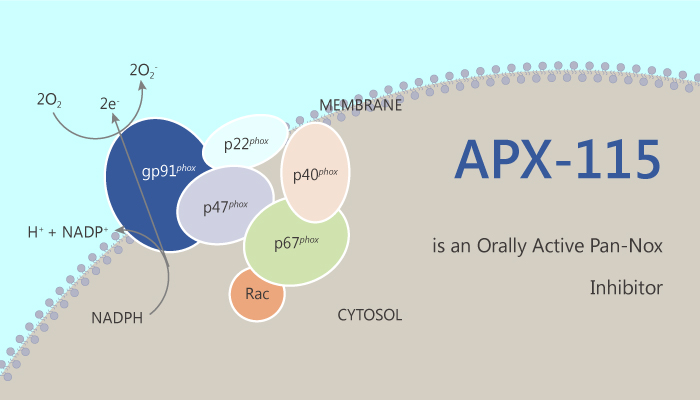The activation of NF-kappa B consists of at least three steps. The processes include degradation of I kappa B alpha, translocation of NF-kappa B into the nucleus, ai post-translational modification of NF-kappa B. As early as 1998, a study from Hiramoto M discovered and reported a novel quinone derivative E3330. It selectively inhibited NF-kappa B-mediated gene expression without affecting any of these steps. The authors suggested that E3330 may belong to a novel class of anti-NF-kappa B drugs.

In addition, APE1/Ref-1 is the foremost regulator of cellular response to oxidative stress via DNA-repair function and co-activating activity on the NF-κB transcription factor. APE1 plays an indispensable role in controlling oxidative stress-based inflammatory processes. This process functions through modulation of cytokines expression. Additionally, it’s overexpression is responsible for the onset of chemoresistance in different tumors including hepatic cancer.
The authors examined the functional role of APE1 overexpression during hepatic cell damage related to fatty acid accumulation and the role of the redox function of APE1 in the inflammatory process. As a result, E3330 treatment prevented the functional activation of NF-κB via the alteration of APE1 subcellular trafficking. Besides, E3330 treatment reduced IL-6 and IL-8 expression induced by TNF-α and FAs accumulation through blockage of the redox-mediated activation of NF-κB. APE1 over-exposure observed in hepatic cancer cells may reflect an adaptive response to cell damage and may be responsible for further cell resistance to chemotherapy and for the onset of the inflammatory response.
To conclude, the efficacy of inhibition of APE1 redox activity opens new perspectives for the treatment of inflammatory-based liver diseases.